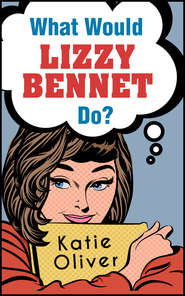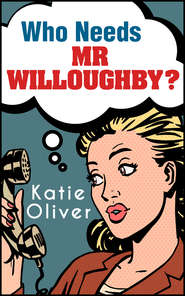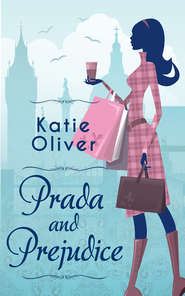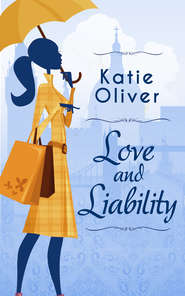По всем вопросам обращайтесь на: info@litportal.ru
(©) 2003-2025.
✖
The Trouble With Emma
Автор
Год написания книги
2019
Настройки чтения
Размер шрифта
Высота строк
Поля
“Indeed it was,” she agreed. “And will be again soon, if the rumours I’ve been hearing are true.” She eyed Emma. “You no doubt know that the Hall’s been sold to a gentleman from London.”
“Yes, I heard. Do you know who he is?”
“I’m sorry to say I don’t. I know only that he must be possessed of a good deal of money – because how else could he afford to buy this old place and fix it up?” She looked in disapproval on the ivy-choked walls and gardens running rampant with weeds. “I did hear that he’s unmarried, though. Not,” she added firmly, “that I’m one to gossip.”
Although Emma half expected a lightning strike to smite Mrs Cusack for this particular lie, when everyone knew that gossip was the one thing the woman did best, nothing happened.
“What he ought to do – the new owner, that is,” Mrs Cusack went on as she joined Emma at the gate, “is to try and get on that telly programme, Mind Your Manors.”
“I’m not familiar with it. I seldom watch television.”
“Oh, it’s marvelous. The presenters – Simon Fox and Jacquetta Winspear – go to a country manor house in need of help and suggest ways to spruce it up and make it viable.”
“Viable?” Emma frowned. “In what way?”
“Self-sustaining, I suppose you’d say. They take an old country house and turn it from a money pit into a bed-and-breakfast, or a posh day spa, or they convince the owners to host festivals on the grounds to draw in the crowds. It costs a lot of money, you know,” she added self-importantly, as if speaking from experience, “to pay for all of those leaking roofs and rotting floorboards and clapped-out boilers.”
“I’m sure. And who pays for the renovations?” Emma, always practical, asked her. “Aren’t they very costly?”
“Oh, that’s the best part! If your house is chosen, you get an allotment of £10,000 pounds, a discount on all associated restoration costs, and free labour.”
Ten thousand pounds, Emma thought, dazzled, and free labour. She allowed herself, just for a moment, to imagine what she could accomplish with that much money at Litchfield Manor. True, it wasn’t a huge sum; but with it, they could repair the leaking roof and fix the squeaky treads in the stairway; they could strip the wallpaper and paint the house, inside and out, and perhaps spruce up the lawn and garden…
“I see you’ve been to the bakery,” Mrs Cusack observed as she eyed the white box dangling from Emma’s hand. “Quite a…colourful character that Mr Boz is.”
“He is indeed.” Emma, knowing the woman wanted to gossip about the flamboyant baker but not wishing to accommodate her, switched the box to her other hand. “What was the name of that television programme you just mentioned, Mrs Cusack? What did you call it?”
“Mind Your Manors. Why?” the woman asked with a quickening of interest. “Were you thinking of putting Litchfield Manor up for consideration?”
As tempting as the idea was, and as badly as Emma longed to do just that, she knew her father would never allow it. He’d hate the idea of a television crew – not to mention painters and repairmen and roofers – traipsing through the house and disturbing the solitude of his study and garden.
“Oh, no, certainly not.” Emma shook her head firmly. “Daddy would abhor the very idea of us being on television. And the house isn’t in such bad shape that we need to consider such drastic measures. At least…not yet.”
But her thoughts whirled. What a lot they could do with ten thousand pounds!
The former vicarage was in desperate need of a fix-up. Every time it rained, Emma retrieved the enamel bowls and battered pots from beneath the sink and placed them under the leaks. Rings of brown rainwater discoloured the ceilings, and water within the dining room wall had buckled the wallpaper. The faint smell of mildew lingered no matter how much she scrubbed.
And the boiler had recently begun making an odd clanking sound.
“You should give the matter serious thought,” Mrs Cusack advised. She glanced up at Crossley Hall and back to Emma. “Litchfield Manor may not be as grand as the Hall, mind, and it may not be grade-I or -II listed; but in my opinion, it’s every bit as worthy as any stately home. It has a history, after all.” She raised a brow. “Just imagine the stories these old places could tell.”
“Indeed,” Emma agreed. She knew exactly the kind of stories Mrs Cusack had in mind – clandestine love affairs, marriages of convenience, illegitimate children, poisonings, and skeletons – literal and figurative – hidden away in the closets.
“The only thing of interest that ever happened at Litchfield Manor,” she went on, “was a duel in 1816 between a certain Lord Branford and his lover’s husband.”
“Is that so?” Mrs Cusack slid her handbag into the crook of her arm. “Why on earth did they choose to have a duel at the vicarage? It seems an unlikely place to settle their differences.”
“Because,” Emma replied, “Lord Branford’s lover was the vicar’s wife.”
“Well, I never heard the like!” Mrs Cusack exclaimed, and shook her head, her lips pursed in disapproval. “Such goings-on were no more unusual then than now, I suppose.”
“Unfortunately, no matter how much we might wish it, human nature doesn’t change, Mrs Cusack. Now, if you’ll excuse me, I need to return home and get a start on my father’s dinner. It was lovely talking to you.”
“And you, dearie, and you. Give my best to Mr Bennet.”
With a promise that she would indeed do just that, Emma bestowed another polite smile on the woman and turned back down the hill, and made her way home.
Chapter 4 (#ulink_e80bd615-ff63-56e0-9251-8e8f74e24dc2)
The scent of apple pie – fragrant with cinnamon and nutmeg and a hint of lemon zest – filled the kitchen when Emma arrived home late that afternoon. Pies sat cooling on every available surface.
The crusts were latticed and beautifully browned, and although Emma loved apple pie as much as anyone, the sight of so many pies filled her with dismay.
Martine, her hands encased in oven mitts and holding another pie she’d just removed from the oven, looked up at her in surprise. “There you are, Miss Em! We’ve been baking all afternoon, your father ’n me.”
“I can see that.” Emma set the bakery box and her handbag aside and turned to survey the pies – all six of them – with disapproval. The small kitchen was hot as blazes. She went to the window and flung it open. “The question is…why on earth have you made so many?”
“I can answer that,” Mr Bennet said as he returned to the kitchen, his cheeks flushed from the heat and a butcher’s apron tied around his expansive waist. “The church bake sale is tomorrow, or had you forgotten? These lovely pies are my – our – contributions to the fundraiser for a new roof for St Mark’s.” He smiled over at Martine. “And we’re not done yet, are we?”
“Six more yet to go,” Martine agreed, and nodded at the unbaked pie shells, apple slices fanned out and nestled inside the crusts, blanketed with cinnamon sugar and bits of butter as they awaited the latticed strips of dough to top them off.
Emma’s heart sank. The bake sale! How could she have forgotten? It was all daddy talked of lately. She’d promised two weeks ago to station herself at a table and sell her father’s pies and scones to the parishioners.
“We need a new roof at Litchfield Manor just as badly.” The words came out more sharply than she’d intended. “Or perhaps you’d rather we built an ark in the back garden to save the cost of a roof?”
“Not a bad idea.” Although he chuckled, the glance he cast his eldest daughter was wary. “We’ve only a few leaks here and there, Emma. That hardly constitutes a need for a new roof…or even an ark, just yet.”
“No. But eventually we will need to replace it. And the boiler’s started to make odd noises. And the wallpaper in the dining room is buckling so badly I’m embarrassed for anyone to see it.” A flush, not from heat but of anger, rose on her cheeks.
Emma sank down into a seat at the kitchen table. She felt, suddenly, like crying. Like laying her head down on the table – if the surface wasn’t covered with pies – and sobbing uncontrollably.
What on earth was wrong with her?
“Martine,” Mr Bennet said, and gave the girl a quick, apologetic smile, “would you do me the very great favour of running into town to fetch more butter? I do believe we’re in danger of running out. If you don’t mind.”
“Of course not,” she murmured, and untied her apron. She took down the jar containing the household petty cash and withdrew several pounds. “I’ll be right back.”
“Take your time.” His words were measured. “No hurry.”
As she left, Emma watched her go and reflected that, for all her lack of a proper education, Martine was quick to pick up on unspoken things…a quiet glance, a frown, a raised eyebrow. She knew when to stay and when to leave, when to speak and when to remain silent.
“What is it, Emma?” her father asked, and pulled up the chair next to hers. “What’s bothering you?”
“Money. We haven’t enough.” She met his eyes. “With Charlotte’s tuition, and now the expenses required for Lizzy’s welcome home party, not to mention the cost of groceries, and utilities, and the constant repairs to this – this rackety old house…”
He waved her concerns aside. “We’ll manage. We always do. Charli finishes sixth form this year, and then our expenses will go down considerably. And we’ll make an effort to keep Lizzy’s homecoming party small and simple. Martine and I can do most of the baking ourselves.”
“We can’t afford Martine.” Emma’s words were decided. “You know we can’t. And nor do we need her here. I can manage the grocery shop and the cooking and cleaning on my own.”











